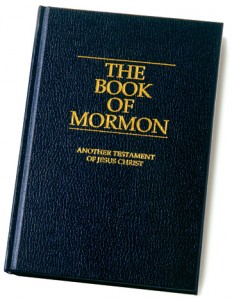|
||
Accountability in MormonismMormons believe that agency, the ability of each person to choose right or wrong and to act freely, is a wonderful gift from God. Mormonism teaches that all individuals here on earth are being tested to see if they will use their agency to show their love for Heavenly Father by keeping His commandments (see “Agency and Accountability“). It is only through our independently choosing to follow the Lord that He can elevate us to the glorious level He desires us to attain.
Mormons believe that accountability begins at age eight. Until that age, Mormonism teaches that children cannot sin. Any transgressions committed by a child under the age of eight are covered by the atonement of Jesus Christ. The Savior Himself stated, as recorded in the Book of Mormon, “little children are whole, for they are not capable of committing sin; wherefore the curse of Adam is taken from them in me, that it hath no power over them” (Moroni 8:8). (For this reason, Mormons do not support the practice of infant baptism.) Furthermore, Mormons believe that men and women are not held accountable for the transgression of Adam, meaning his fall from the presence of the Lord in the Garden of Eden. As Joseph Smith, the first president of the Mormon Church, stated in the second Article of Faith, “We believe that men will be punished for their own sins, and not for Adam’s transgression.” Opposition is a principle that refers to the existence of both good and bad in the world. Mormons believe that opposition is necessary: “For it must needs be, that there is an opposition in all things. If not so . . . righteousness could not be brought to pass, neither wickedness, neither holiness nor misery, neither good nor bad” (2 Nephi 2:11). Without the good and the bad in this world, none of God’s children would understand—nor be able to use—their agency. The Lord must see His children use their agency righteously in order to prove them. At times it is difficult to withstand the evils and sadness in the world. But Mormons believe that suffering is part of the test of mortality. During trying times we can remember that peace and comfort are promised to those who obey the commandments of the Lord: “Search diligently, pray always, and be believing, and all things shall work together for your good, if ye walk uprightly and remember the covenant wherewith ye have covenanted one with another” (Doctrine and Covenants 90:24). Mormonism teaches that accountability is a necessary aspect of the gospel of Jesus Christ and of the Lord’s plan of salvation for each of His children. In order for us to return to live with Heavenly Father, we must prove ourselves as servants of the Lord who humbly choose to be obedient. We can be rewarded for the service we perform on Earth only if we are held accountable for it.
|


